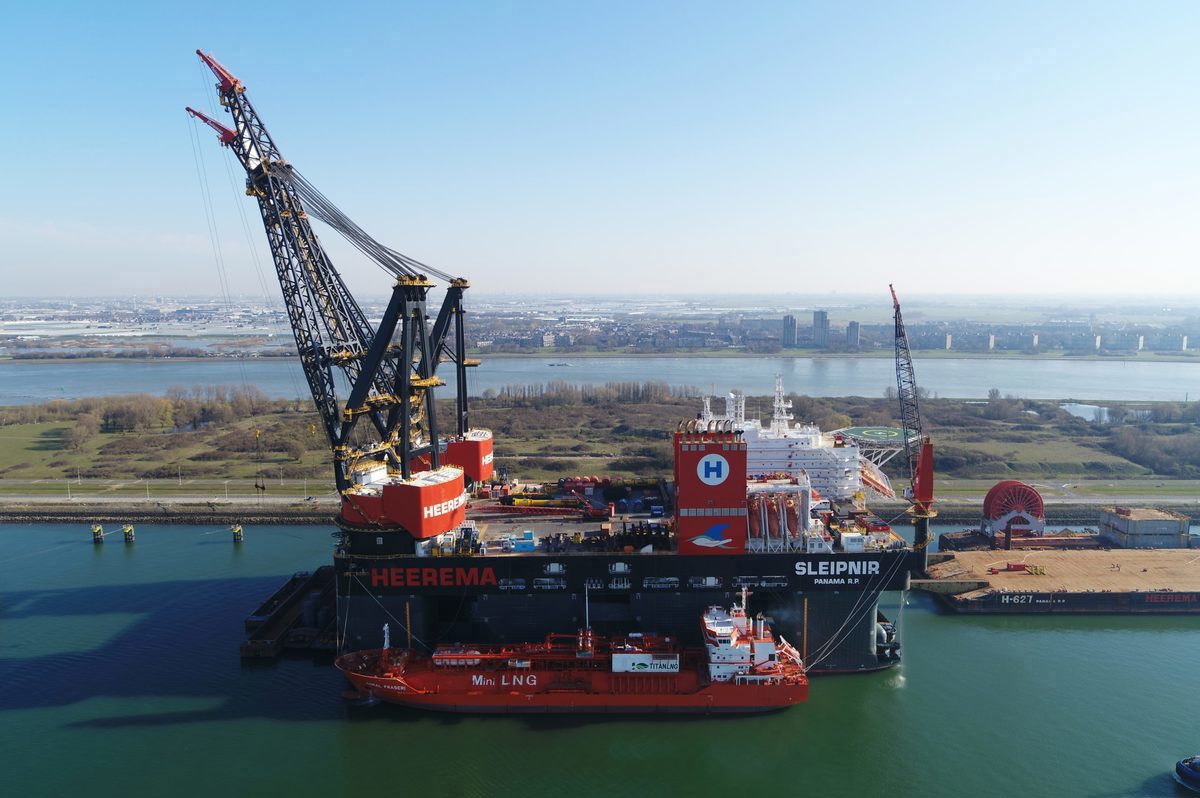LNG Bunker Snapshot: Gas-to-oil switching seen in Rotterdam
In Rotterdam, some dual-fuel vessels are gradually shifting from LNG to oil as VLSFO prices drop below LNG levels.
 PHOTO: A bunker vessel delivering LNG to a semi-submersible crane vessel in Rotterdam. Titan
PHOTO: A bunker vessel delivering LNG to a semi-submersible crane vessel in Rotterdam. Titan
Changes in weekly LNG bunker prices:
- Rotterdam down by $50/mt to $739/mt
- Singapore down by $16/mt to $847/mt
Rotterdam
The LNG bunker price in Rotterdam has plunged by $50/mt to $739/mt in the past week. The port's benchmark has tracked the downward movement in the front-month NYMEX Dutch TTF Natural Gas contract.
Even with the lower price, many dual-fuel vessels are opting for oil over LNG, according to an LNG supplier. One supplier mentioned that smaller LNG deliveries have higher delivery premiums per mt, which makes conventional oil-based bunker fuels more appealing options. Right now, HSFO, VLSFO and LSMGO are all cheaper than LNG in Rotterdam. All of these prices are VLSFO-equivalents and therefore comparable with one another.
Rotterdam’s LNG price is $194/mt higher than that of HSFO, $89/mt higher than VLSFO and $19/mt higher than LSMGO.
The LNG price drop is primarily due to weaker demand, influenced by concerns about global economic growth and easing supply conditions in Europe. Stable LNG shipments to the EU countries have also contributed to the decline in prices, according to Energi Danmark.
Currently, European gas storage levels are more than 92% full, meeting the European Commission's target ahead of schedule. This high storage level also indicates that supply is ample, contributing to the drop in LNG bunker price, Rystad Energy said.
Singapore
Singapore’s LNG bunker price has come down by $16/mt in the past week, driven by a lower NYMEX Japan/Korea Marker (JKM) price.
The price reduction is linked to decreased LNG demand in Japan. Recent outages at key Japanese gas-fired power plants, due to fuel shortages and equipment issues, have lowered LNG consumption, Rystad Energy said.
The recent rains in Japan have further decreased power needs for cooling, leading to lower LNG demand.
By Debarati Bhattacharjee
Please get in touch with comments or additional info to news@engine.online






